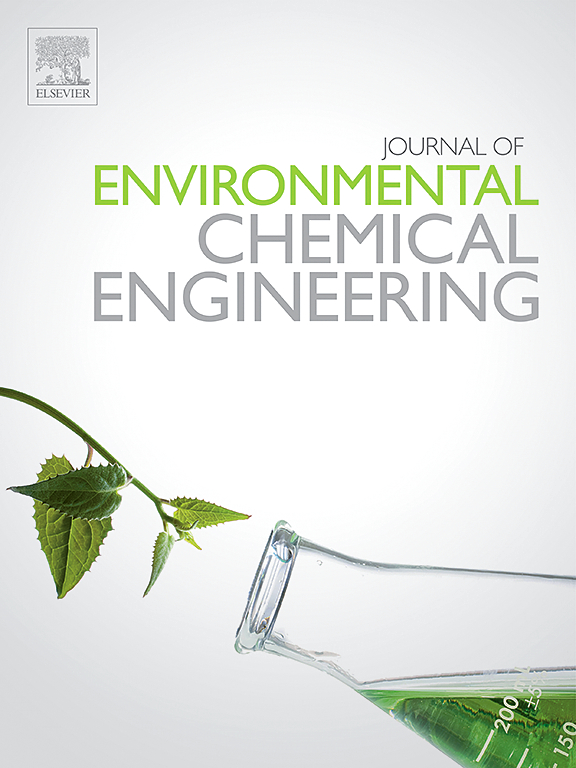外加电场对有机废物堆肥过程的影响研究进展
IF 7.2
2区 工程技术
Q1 ENGINEERING, CHEMICAL
引用次数: 0
摘要
电场辅助好氧堆肥(EFAC)作为一种新兴的有机固体废物处理技术,通过外源电场对微生物代谢和电子传递途径的定向调节,显著提高了堆肥效率和产品质量,降低了环境风险。本文从系统配置分析、堆肥理化性质、腐殖化过程、碳氮转化、重金属固定化、新兴污染物、温室气体排放、微生物群落演为等方面对EFAC的作用进行了系统综述。值得注意的是,与传统的好氧堆肥相比,电场的应用提高了氧气的利用率,最大限度地减少了厌氧区,并促进了嗜热和电活性细菌的生长。这加速了堆肥的成熟,缩短了处理时间。此外,未来的研究还将集中在添加剂协同作用的机理、电子转移的具体机制的阐明以及规模应用等方面。旨在为今后EFAC技术在有机废物处理领域的应用研究提供参考依据。本文章由计算机程序翻译,如有差异,请以英文原文为准。
Effects of an applied electric field on the composting process of organic wastes: A review
Electric field-assisted aerobic composting (EFAC), as an emerging organic solid waste treatment technology, significantly improves composting efficiency and product quality and reduces environmental risks through the directional regulation of microbial metabolism and electron transfer pathways by an exogenous electric field. In this paper, a systematic review was conducted on the effects of EFAC, focusing on its system configuration analysis, compost physicochemical properties, humification process, carbon and nitrogen conversion, heavy metal immobilization, emerging contaminants, greenhouse gas emission, and microbial community succession. Notably, compared to conventional aerobic composting, the application of an electric field enhances oxygen utilization, minimizes anaerobic zones, and boosts thermophilic and electroactive bacteria. This accelerates compost maturation and reduces processing time. In addition, future research could focus on the mechanism of additive synergism, elucidation of the specific mechanism of electron transfer, and scale-up applications. It aims to provide a reference basis for future research related to the application of EFAC technology in the field of organic waste treatment.
求助全文
通过发布文献求助,成功后即可免费获取论文全文。
去求助
来源期刊

Journal of Environmental Chemical Engineering
Environmental Science-Pollution
CiteScore
11.40
自引率
6.50%
发文量
2017
审稿时长
27 days
期刊介绍:
The Journal of Environmental Chemical Engineering (JECE) serves as a platform for the dissemination of original and innovative research focusing on the advancement of environmentally-friendly, sustainable technologies. JECE emphasizes the transition towards a carbon-neutral circular economy and a self-sufficient bio-based economy. Topics covered include soil, water, wastewater, and air decontamination; pollution monitoring, prevention, and control; advanced analytics, sensors, impact and risk assessment methodologies in environmental chemical engineering; resource recovery (water, nutrients, materials, energy); industrial ecology; valorization of waste streams; waste management (including e-waste); climate-water-energy-food nexus; novel materials for environmental, chemical, and energy applications; sustainability and environmental safety; water digitalization, water data science, and machine learning; process integration and intensification; recent developments in green chemistry for synthesis, catalysis, and energy; and original research on contaminants of emerging concern, persistent chemicals, and priority substances, including microplastics, nanoplastics, nanomaterials, micropollutants, antimicrobial resistance genes, and emerging pathogens (viruses, bacteria, parasites) of environmental significance.
 求助内容:
求助内容: 应助结果提醒方式:
应助结果提醒方式:


